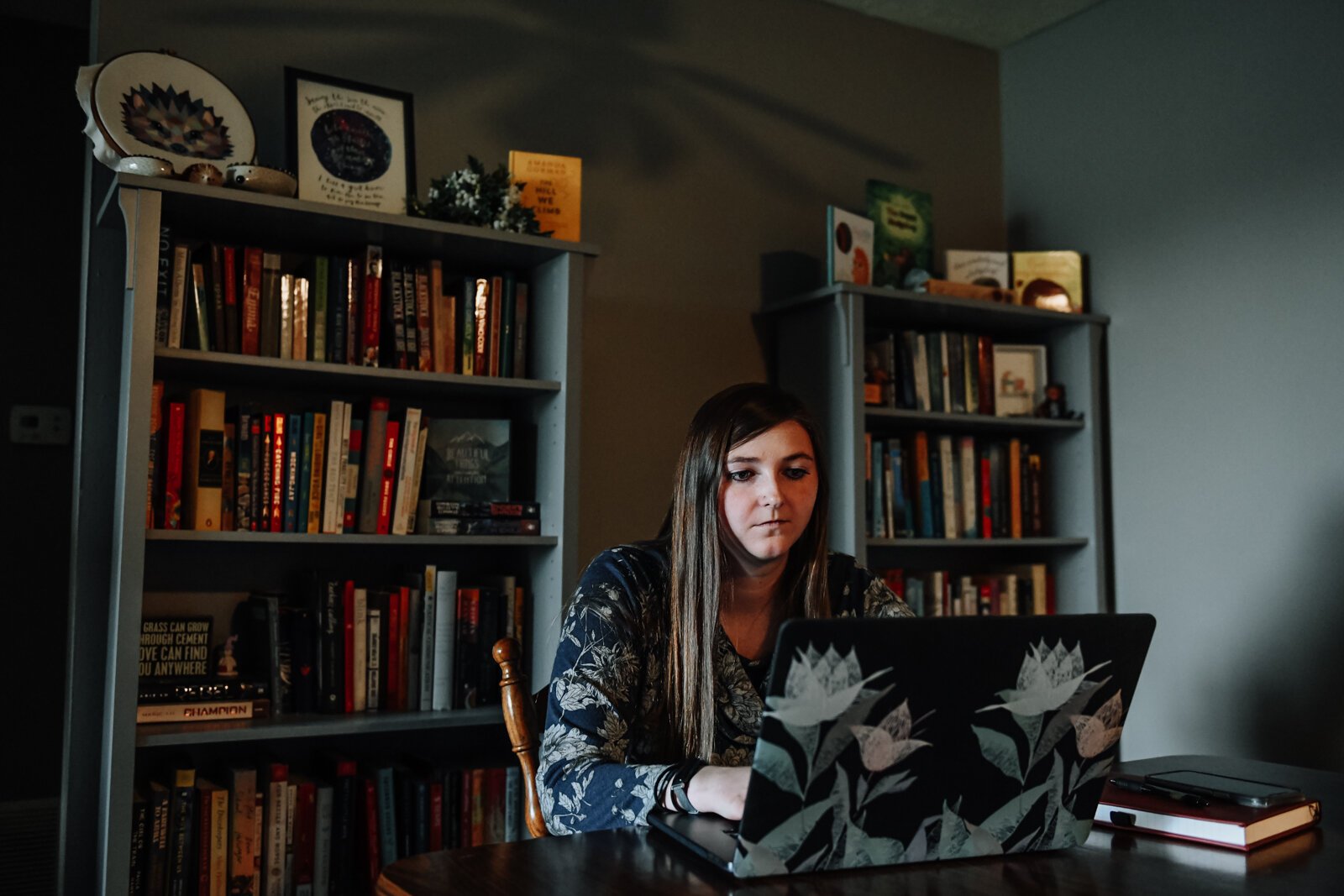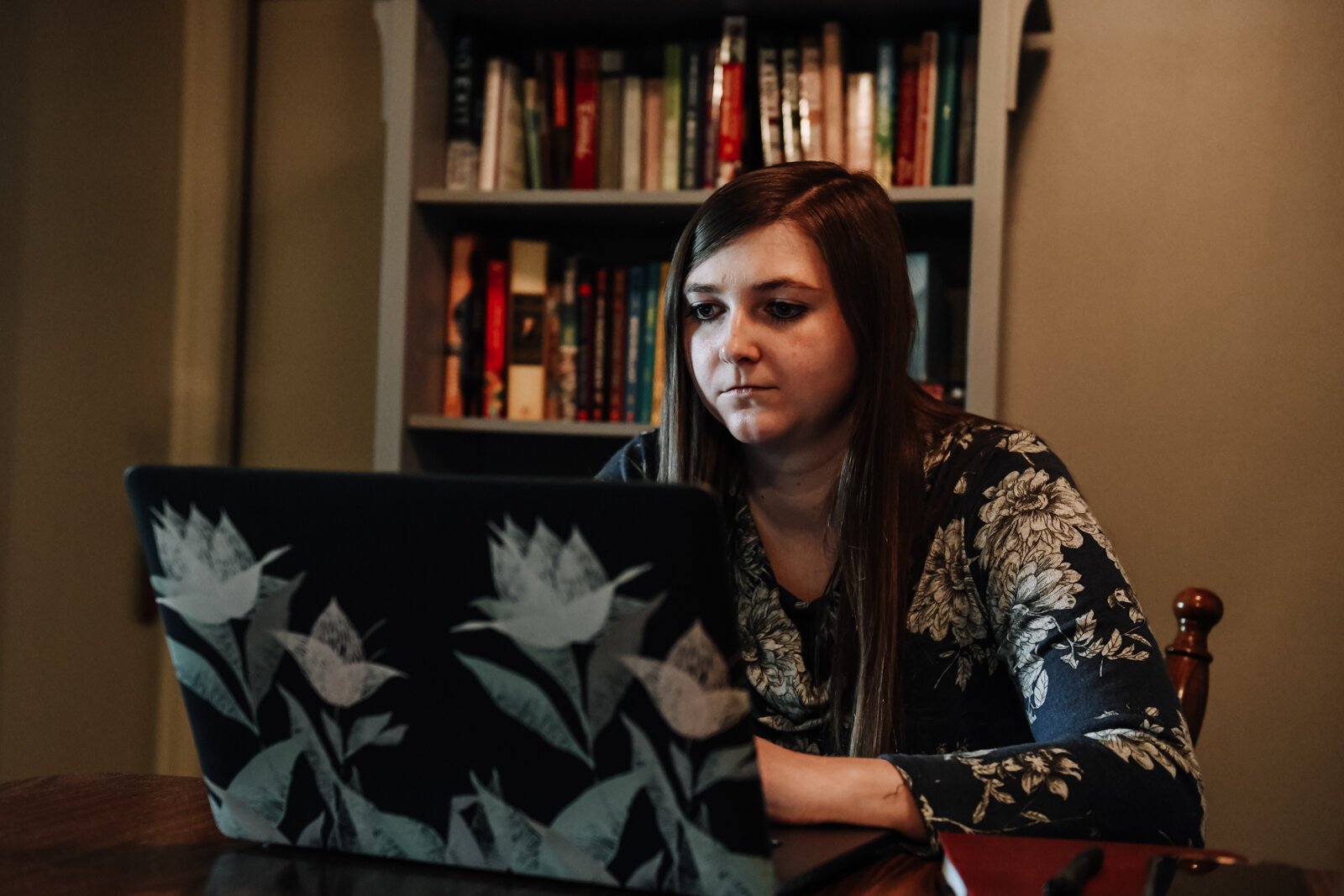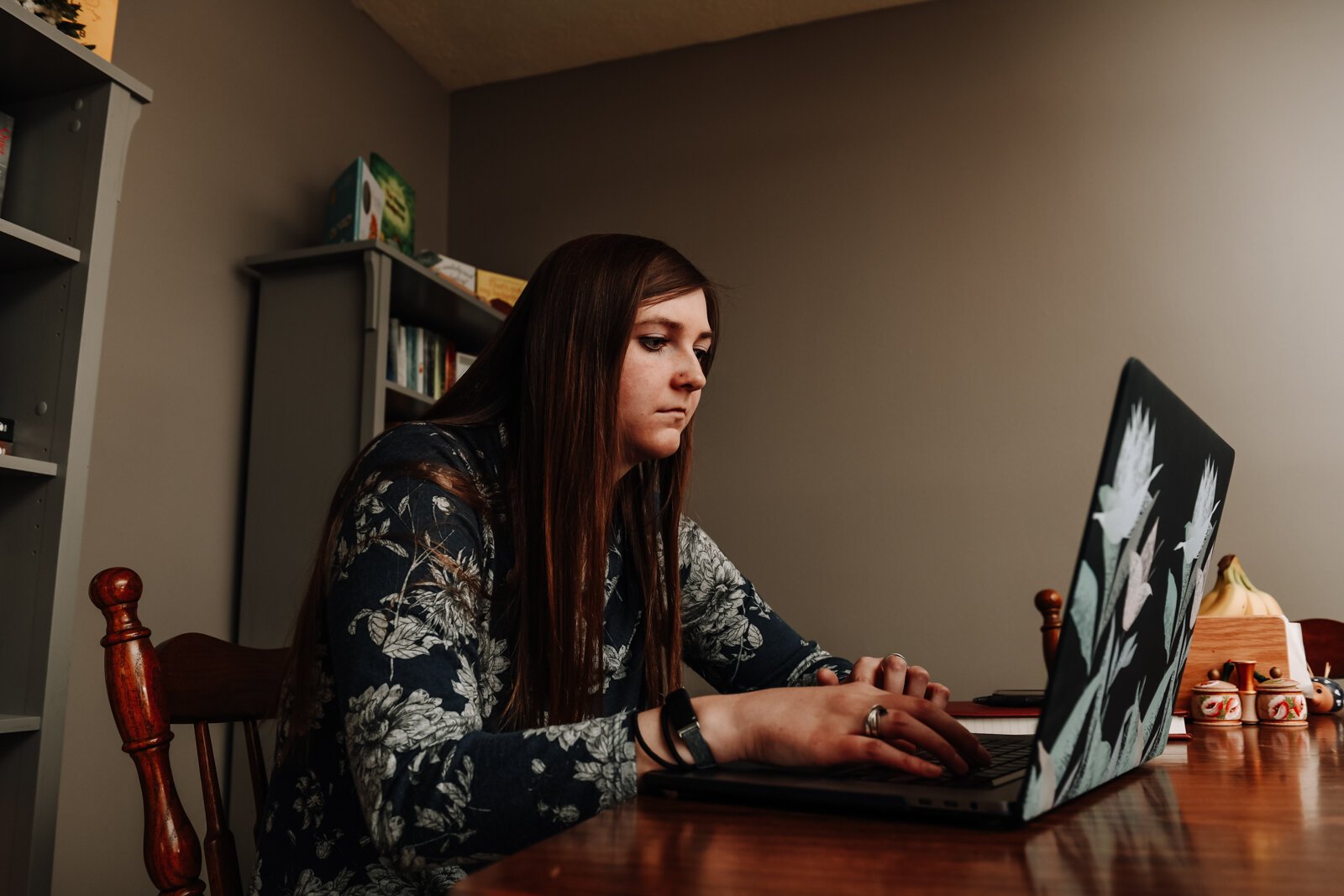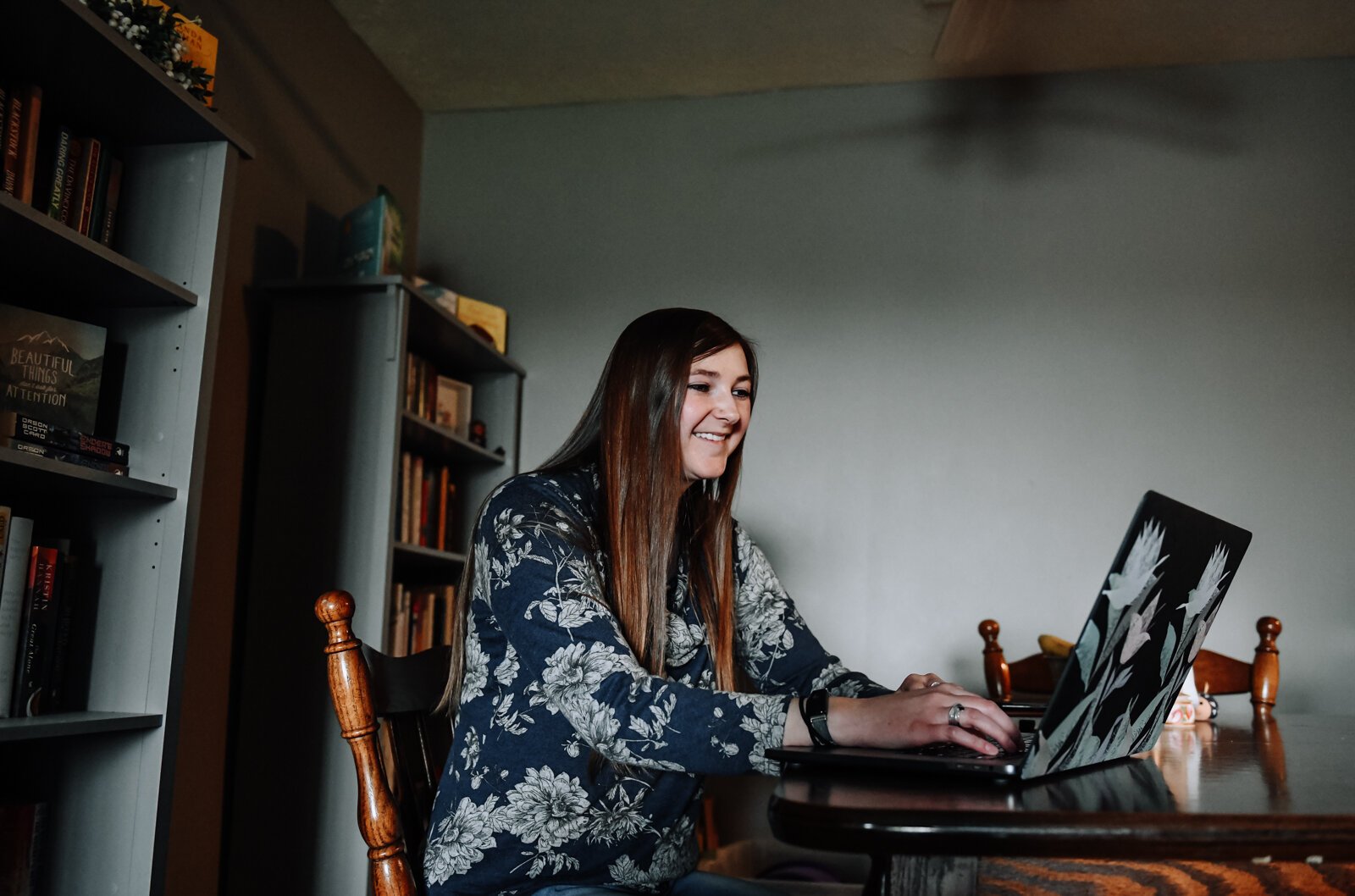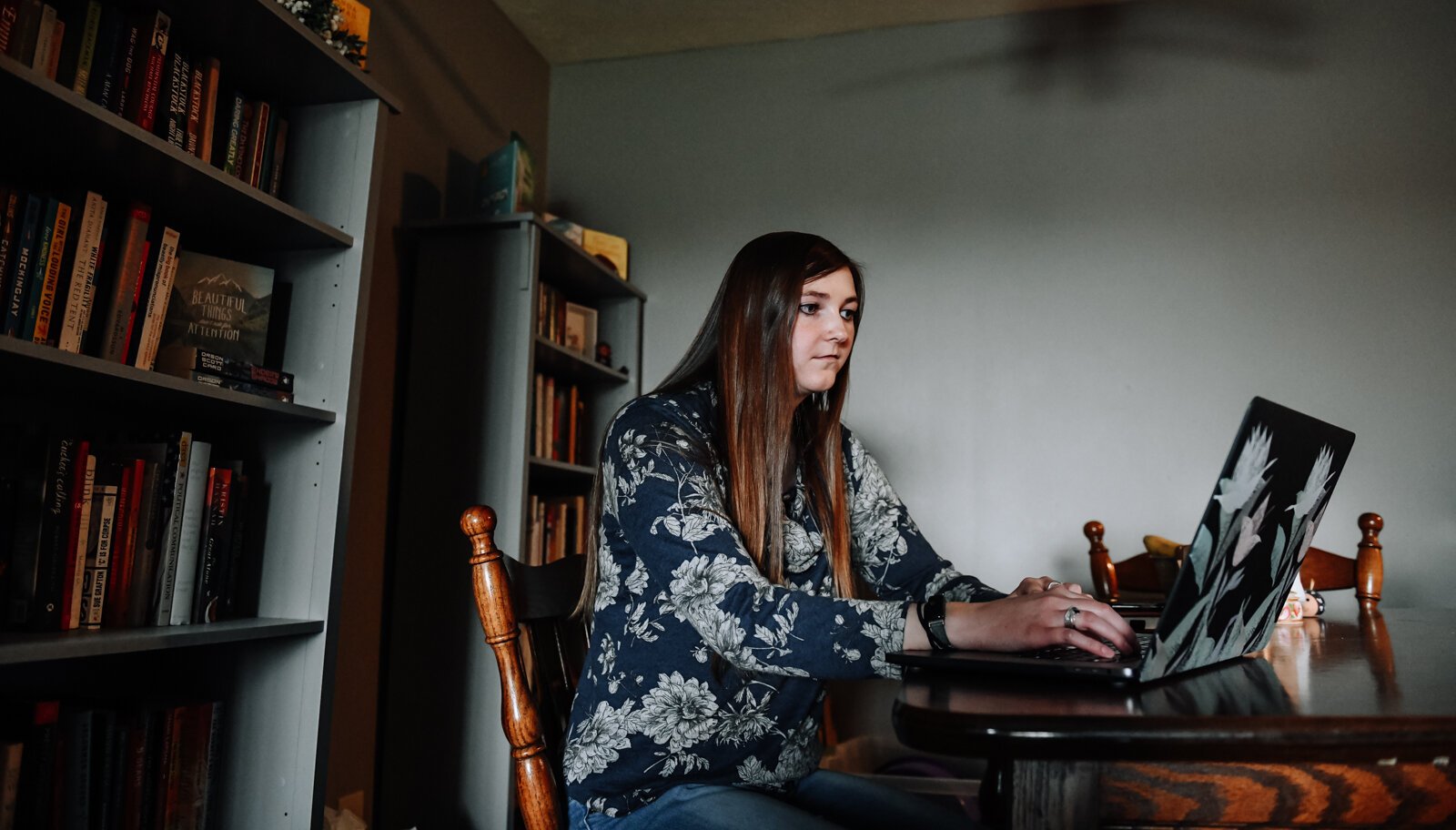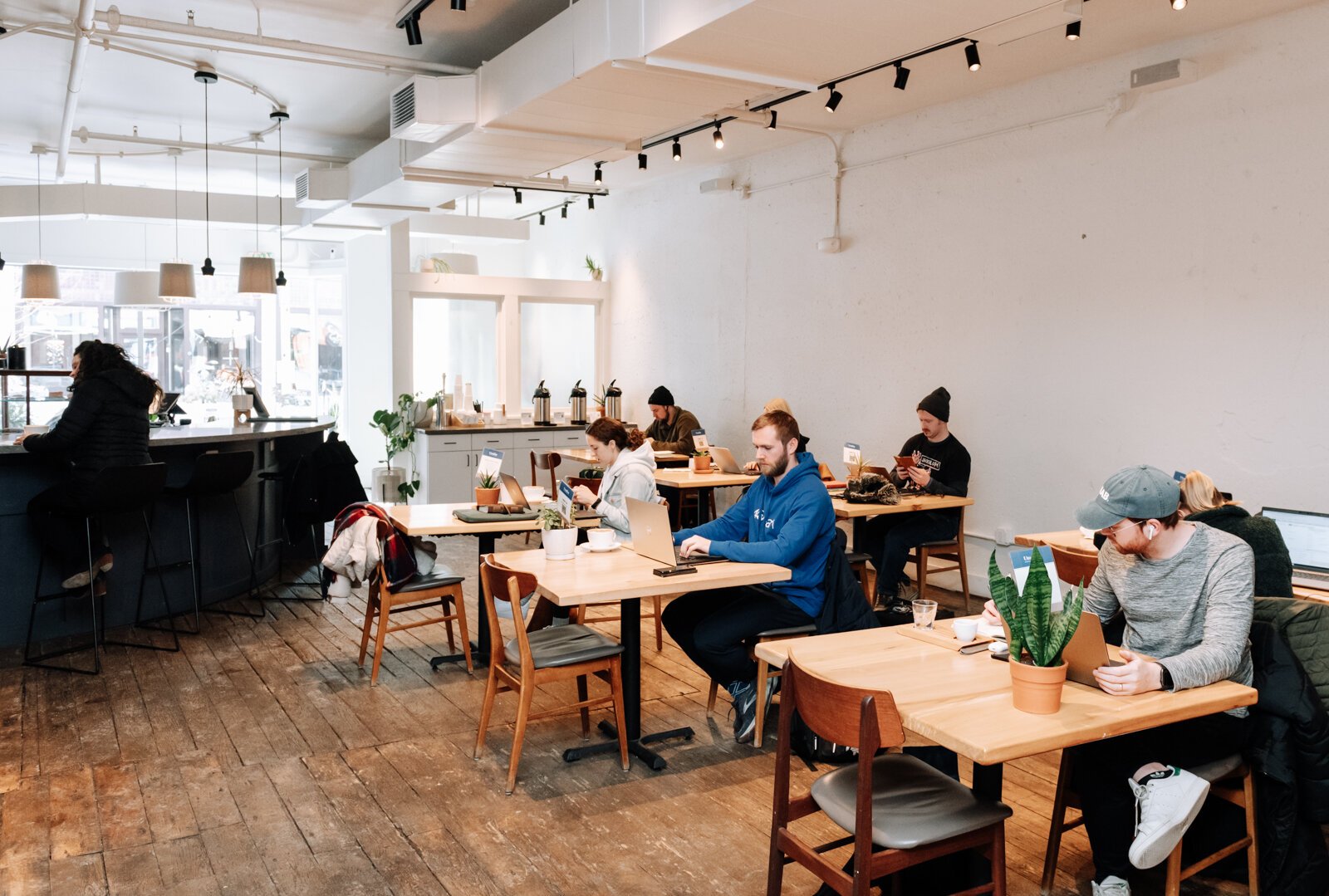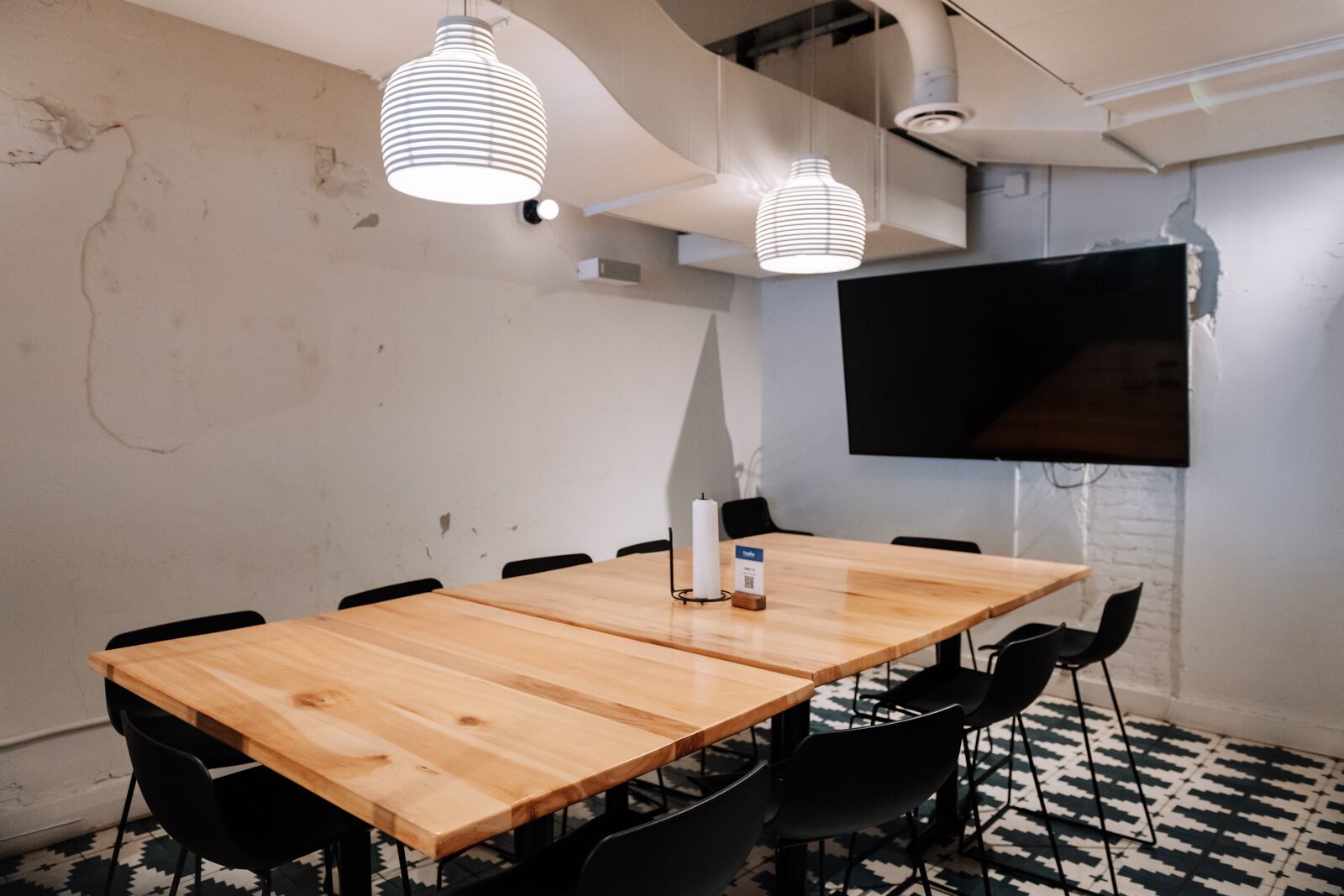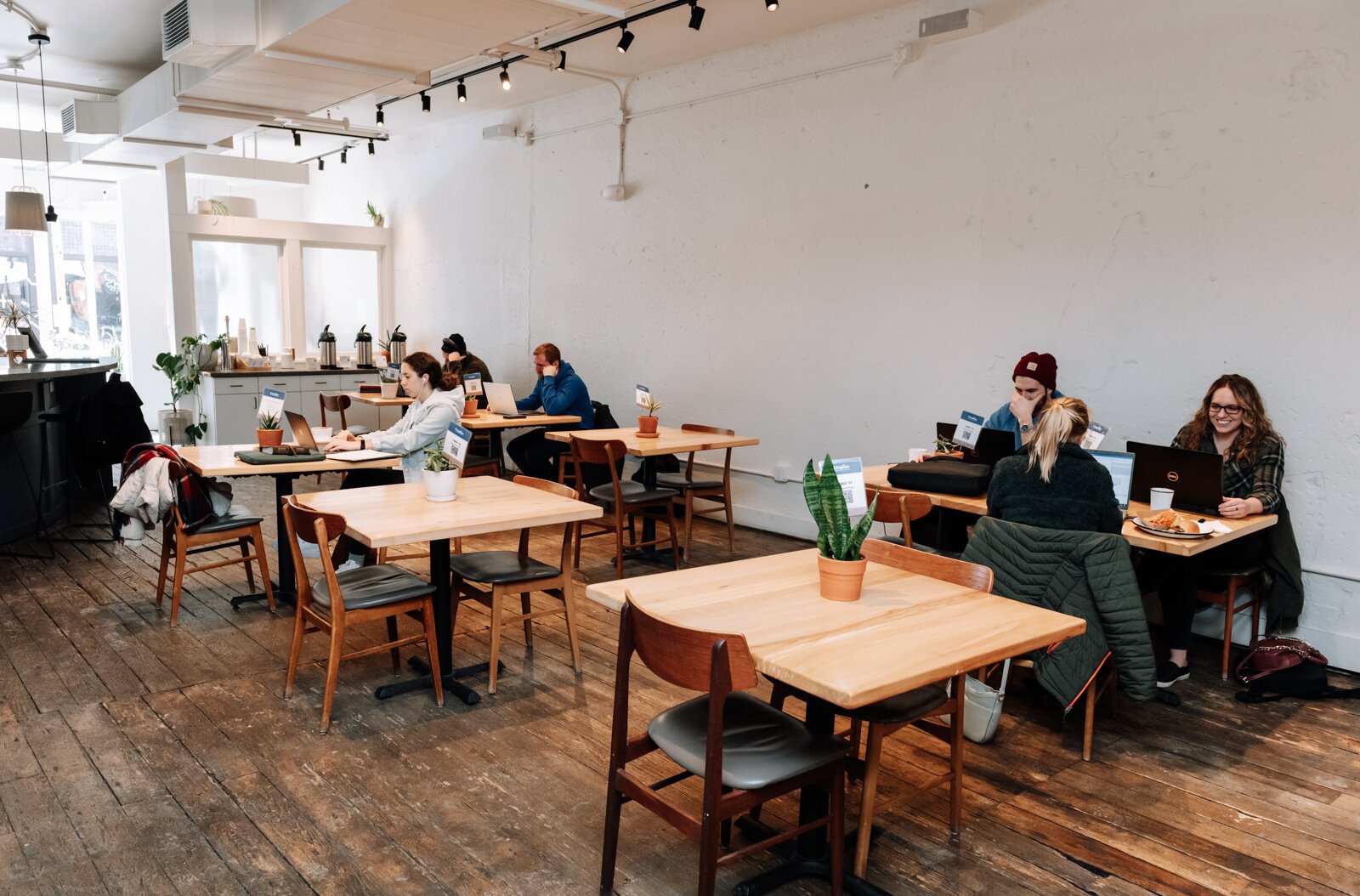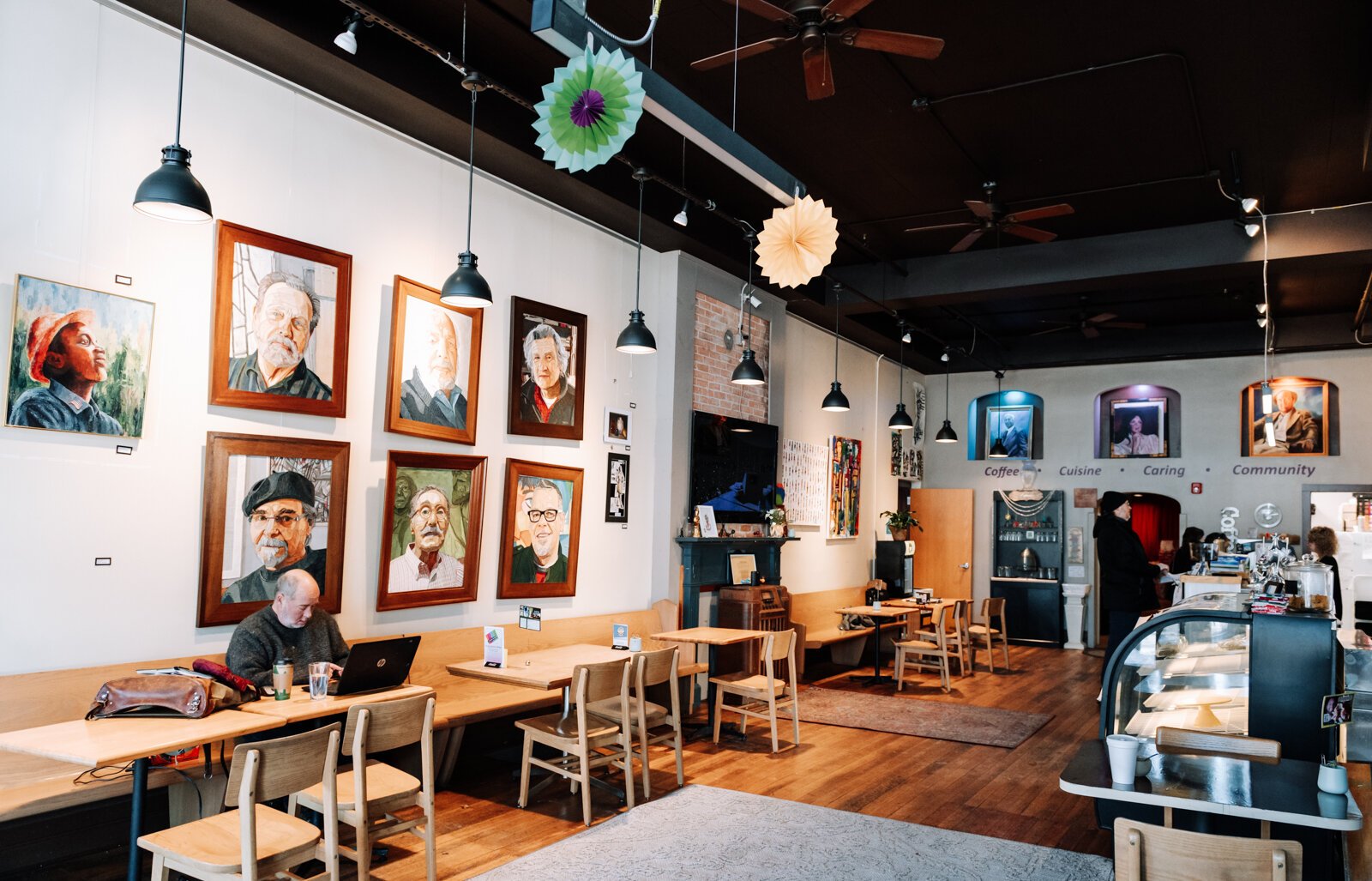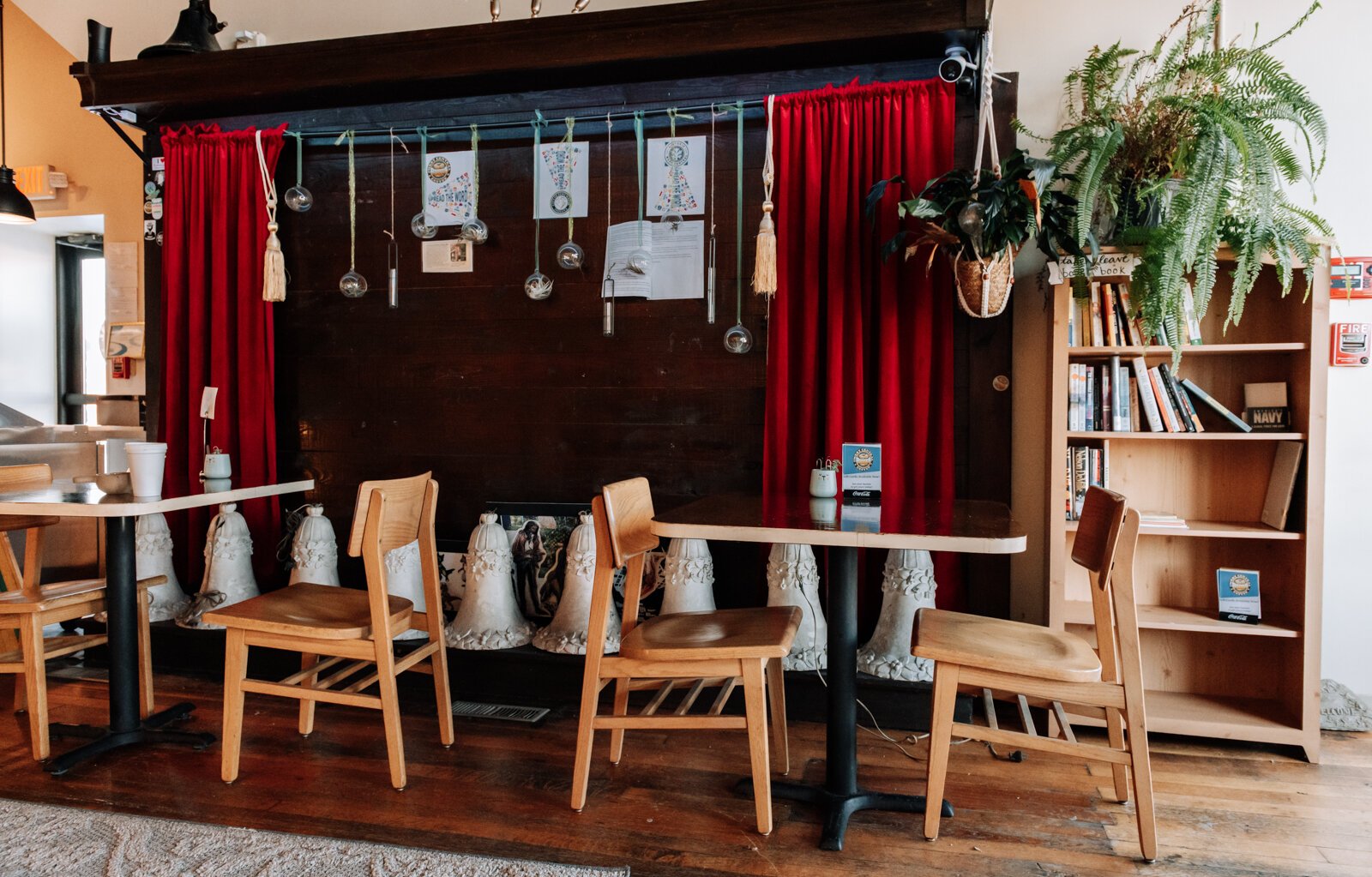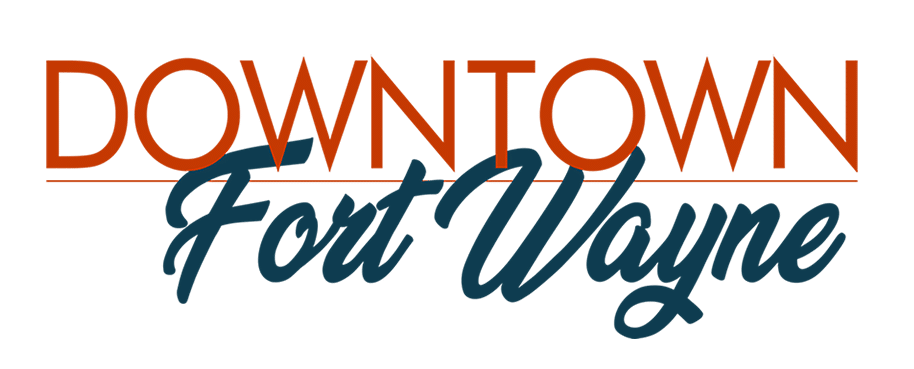‘It’s unbelievable’: Fort Wayne employees and businesses are feeling the shift to remote work
"The workplace ebbs and flows like everything else; it’s just a matter of companies and employees being in positions to evolve with it.”
Having worked in employee benefits in Northeast Indiana since 2001, John Court has seen a transition during the COVID-19 pandemic unlike anything he’s experienced previously in his career.
“It’s unbelievable the movement that we’ve seen in the past three years when it comes to remote work,” Court says. “It’s ever-evolving. What was commonplace six months ago seems to be different today, which is different than what it was originally when remote work started.”

Court is an Employee Benefits Advisor at EPIC Insurance Brokers & Consultants, where he works primarily with employers based in Northeast Indiana. While not all jobs in the region are suited for remote work, such as positions in healthcare or manufacturing, he’s seen many employers and employees following national trends and rethinking how their jobs can be done more remotely.
Deloitte’s Reconstructing the Workplace highlights how the global pandemic has forced most companies to shift from working in the office to working from home and adopt a wholly digital way of working. It says, “in doing so, we discovered that when work lives in digital space, when workers are working digitally rather than working physically, where the worker is located matters much less than how the work is done.“
Even so, as Court has experienced, what increased opportunity for remote work means for cities and businesses is still largely evolving—both in Fort Wayne and throughout the country.
“I’d say a lot of employers are struggling with how that’s going to look for them on a go-forward basis,” Court says. “But again, they’re trying to evolve as quickly as the marketplace is.”
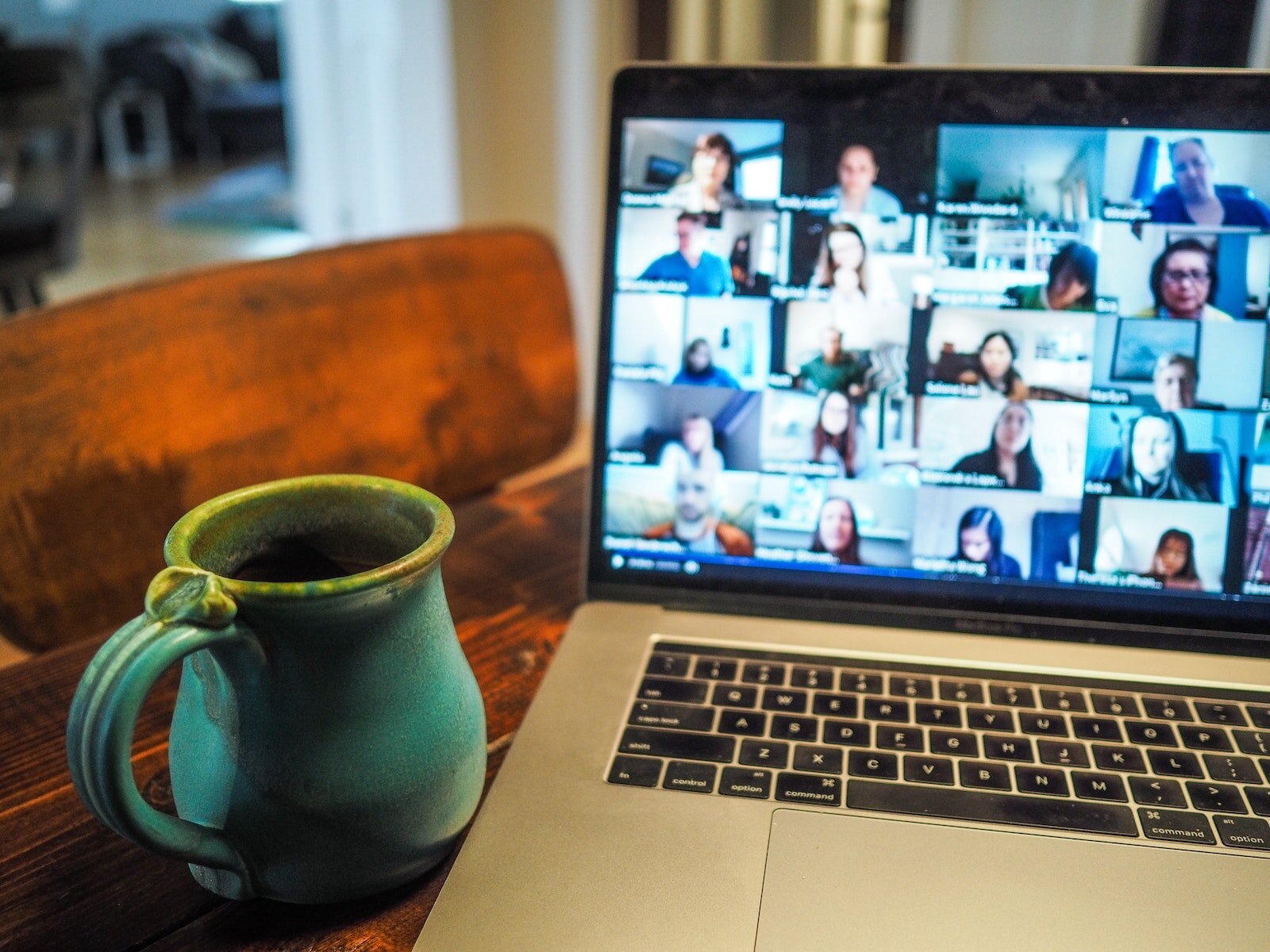
There’s increased incentive for employers to keep evolving and offering employees greater benefits, too. A 2021 study by Pew Research Center finds that, among those who quit their jobs during the pandemic’s Great Resignation, a desire for better work-life balance and flexibility is among the top five reasons for leaving a job.
In other words, employees aren’t just quitting, they’re upgrading their careers. This drives employers to improve job standards and benefits, so they can remain competitive.
Ellen Cutter, Chief Economic Development Officer at Greater Fort Wayne Inc., has seen this trend firsthand in Allen County. The pandemic was “a leveling event,” she says, prompting employers and employees alike to rethink what they want out of work.
“What we experienced here in the Greater Fort Wayne area was that it really prompted our local businesses to catch up with some of those flexible benefits that workers are seeking to stay competitive,” Cutter says.
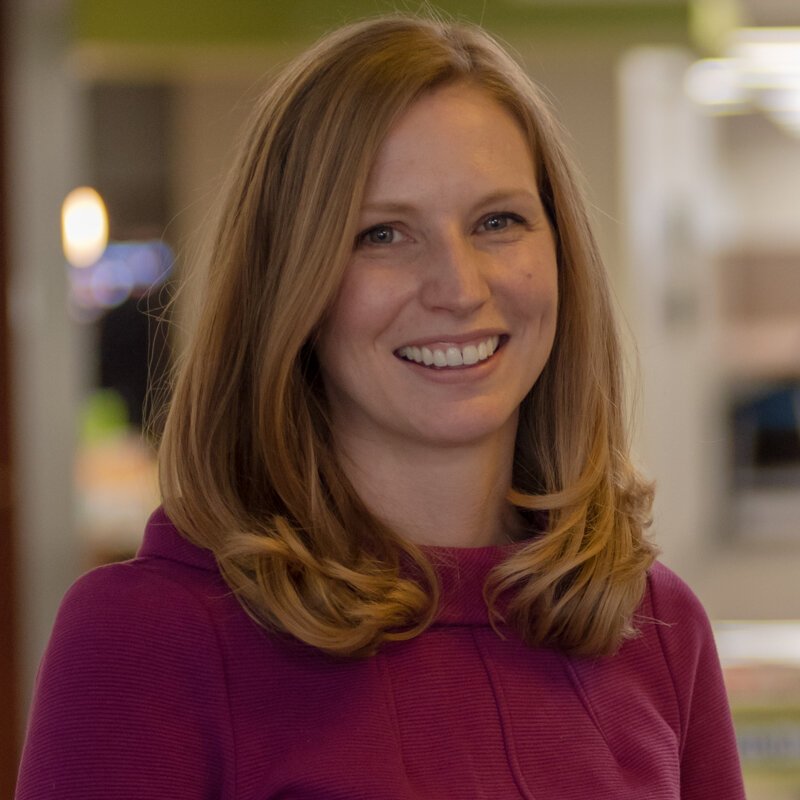
Employers now need to adjust to multiple workplace styles and preferences to retain talent. But making the change isn’t always easy or clear.
One complication with remote work is that it’s unclear just how much of it employees want, and their desires shift greatly from person-to-person. According to NTT’s 2021 Global Workplace Report, there is a general ‘30-30-30’ split among employees. When given the choice, approximately 30 percent of employees prefer to work remotely, 30 percent prefer company premises, and 30 percent prefer alternating between the two.
Locally, Court calls remote work both “a blessing and a curse.”
“From an employee standpoint, now you’re able to be in the market not only locally, but also on a national basis,” he says. “What a lot of companies are struggling with is the 100 percent remote. The teamwork, the camaraderie, the ability to assign real time action items as they come up is going to create some long term challenges to go 100 percent remote.”
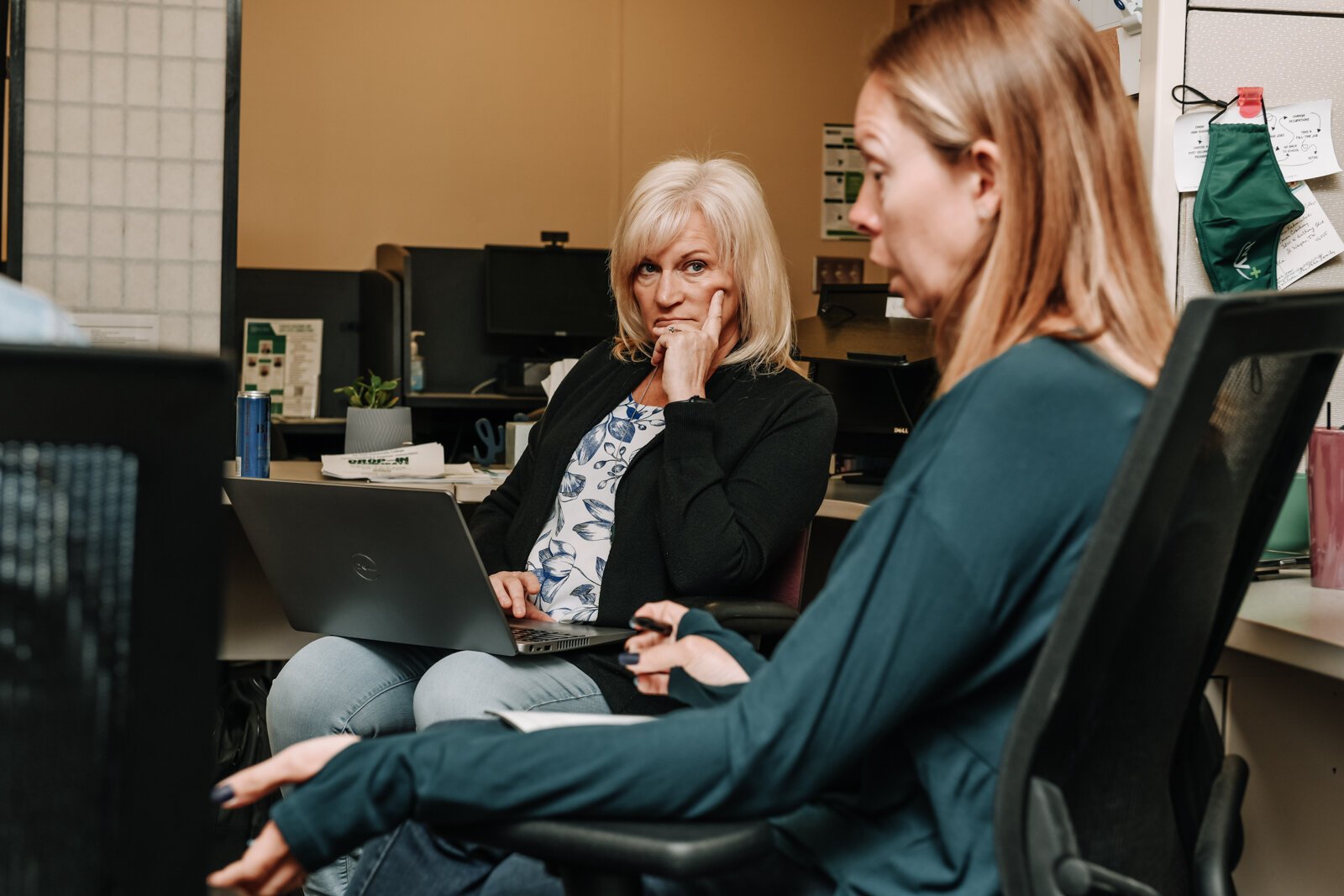
A quick search on LinkedIn shows that as the pandemic subsides, there are far more on-site and hybrid job opportunities than fully remote positions with Fort Wayne companies. The hybrid work model is gaining traction, where employees are in the office for a set number of days each week and work remotely the rest of the time. A smaller number of companies in town are allowing some of their employees to work remotely on a full-time basis, such as Lincoln Financial and Parkview Health.
Hallie Custer, Vice President of Human Resources at Parkview Health, says that while not every job at Parkview is able to offer a remote setup, like clinical staff, her team is seeing the benefits of offering flexibility for those jobs that can be done remotely. She estimates more than 1,500 nonclinical co-workers at Parkview are working remotely or in a hybrid capacity.
“The pandemic pushed us to think differently,” says Custer. “At first, we kept people home for safety, but eventually we realized our potential to be more flexible with our remote co-workers and sustain many of our support and administrative operations. We also took the opportunity to ask our co-workers and leaders for feedback around continuing the concept of hybrid or remote work, which was supported.“

Along with changing the way Fort Wayne works, a new remote work economy means that Fort Wayne companies aren’t just competing with other local companies for talent—they’re competing with the world.
“Today’s workforce requires a new and fresh approach to flexibility,” says Custer. “Remote and hybrid work can be perceived as more of an expectation than a benefit and can impact your ability to attract and retain your valuable talent.”
As sentiment around remote work and flexibility is shifting in Fort Wayne, some say it’s not happening fast enough. Fort Wayne resident Heather Smith is one resident that believes most local companies still have catching up to do.
“There are a lot of really great companies in Fort Wayne, but they’re being slow to wake up to the fact that it’s more important for people to have quality of life and to have competitive salaries, and that those jobs exist with the way the world is changing and being able to work from anywhere,” says Smith. “Fort Wayne companies are going to have to be a lot more competitive to retain talent.”

After spending 20 years of her career working on-site for companies in Fort Wayne, like most people, Smith found herself suddenly working from home when COVID-19 stay at home orders went into effect in March 2020. She realized she not only enjoyed the work-life balance that remote work offered, but was thriving in her work from home set-up. When the time came to go back into the office for her Fort Wayne-based ad agency, she decided to switch jobs to a company that allowed her to work remotely full time.
“As long as I can do my job and communicate and I have wifi, I can work from anywhere,” says Smith. “I love the fact that I can take a break and go walk around the block and clear my head, get some movement. I can go to the gym over lunch, and I don’t feel like I have to rush back. There’s no office drama; there’s no unnecessary chit chat.”
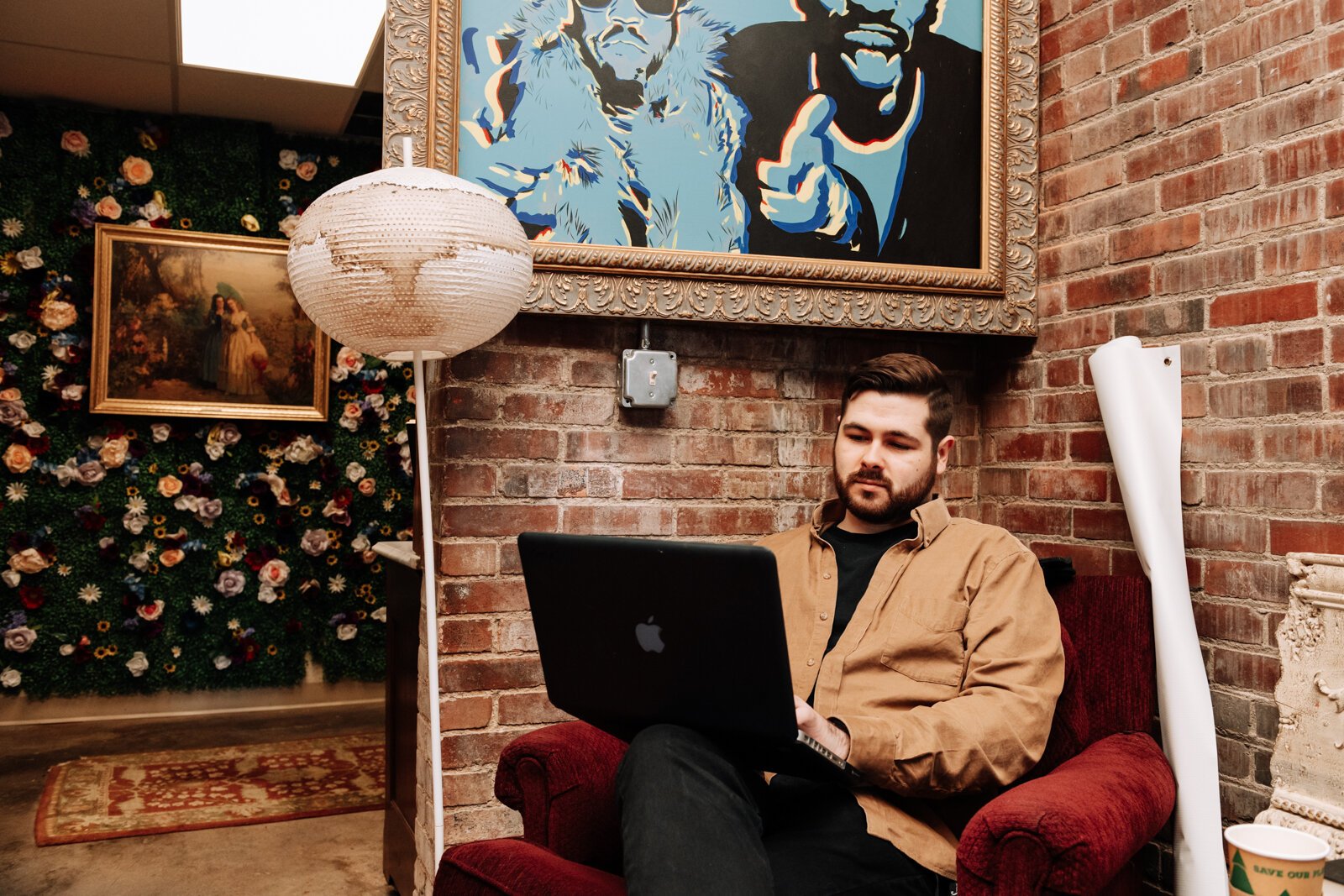
Company culture is often cited as a top reason for companies wanting employees to work in the office. Yet business leaders throughout the world are finding that a remote first culture is possible, and many in the workforce are willing to forego the traditional company culture in exchange for more flexibility.
“Having a soda machine or beer friday is not enough to compensate for the joy that people get from working from home for the people who prefer it,” says Smith. “There are people who prefer to go into an office; I get that. But I think there are many of us who prefer to work from home and who have culture with our coworkers in a different way.”
Still, leaders in Fort Wayne feel that in-person interaction is integral to the city’s success.
“Fort Wayne is a very relational community,” says Cutter. “We like to say we’re like a big small town, and I think that’s because our community and business leaders are very accessible. There is something to that face-to-face interaction. Community events, network events—those things are a big part of who we are as a community.”

The challenges and opportunities with remote work are multi-faceted. On one side of the coin, Fort Wayne can benefit from an influx of residents who previously might not have been able to move to the city because of various job constraints, but are now able to move here and work remotely for a company elsewhere. Fort Wayne has posted positive domestic migration trends for the past five years, and is set up to potentially benefit from the remote work economy. The Allen County Together plan highlights that with millions of workers having more freedom and flexibility to choose where they live, new patterns of domestic migration could benefit locations like Fort Wayne.
“I think Fort Wayne has been a big beneficiary of that trend,” says Cutter. “When you look at our market—not too big, not too small, accessible, right in the middle of seven major Midwestern metros, affordability, very short commute times—in the long run, that provides opportunity for our locally based employers. Attracting those workers who are 100 percent remote, over the long run, is an opportunity for our employers that are already here.”

On the other hand, Fort Wayne risks losing local talent to remote companies that offer more flexibility, a nationally competitive salary, and other benefits.
Christi Hille is another Fort Wayne resident who found remote work to be a better fit. Hille made the switch to working remotely for a company outside of Fort Wayne just before the pandemic in early 2020, and has found that remote work offers more job opportunities in her field, higher salaries, and more flexibility.
“In 2020, I had been job hunting in Fort Wayne for a while, and there were really only two companies that offered pay that was in market value,” says Hille. “I began to feel incredibly disheartened until a former coworker reached out about a remote position in social impact tech.”

Hille made the leap to remote work, and since then, says she has been able to increase her salary by about 40 percent.
“I’ve found it really amazing to meet different people from around the country,” she says. “My previous and current coworkers have been truly inspiring people. It’s been refreshing to learn about their backgrounds and the places that they’re from and discover a sense of understanding that Fort Wayne isn’t the only place out there. It’s also given me a renewed sense of appreciation for everything Fort Wayne offers in terms of entertainment, arts and culture, and food.”
Local companies that are offering remote work opportunities are also able tap into larger national talent pools to fill gaps in their company.
“In this tight labor market, remote and hybrid work has opened up our candidate pool and helped Parkview be more competitive with larger organizations across the country,” says Custer. “While the majority of our team is based in the Northeast Indiana region, we are starting to see more out-of-state co-workers for those roles that are predominantly remote.”
The future of work may be hybrid, but a sizable segment of the workforce has indicated that they won’t be going back to the office anytime soon. The changes brought on by the COVID-19 pandemic have given workers an opportunity to decide what work looks like for them, and companies in Fort Wayne and throughout the world are having to adjust accordingly.
“Remote work is ever evolving, just like everything else,” says Court. “I remember probably 10 years ago, everyone had an office with a door that closed. Then, all of a sudden, it evolved to open workspaces and the low-wall cubicles, and now it feels like everyone’s going back to the high-wall cubicles, and offices are closed again. The workplace ebbs and flows like everything else; it’s just a matter of companies and employees being in positions to evolve with it.”


